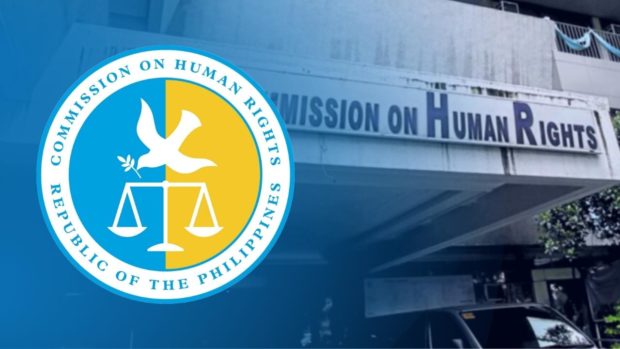CHR report indicts fossil fuel companies for climate change

INQUIRER FILE PHOTO
MANILA, Philippines — The world’s fossil fuel companies have “obfuscated, obstructed, derailed and delayed” efforts to transition to renewable energy sources, undermining the people’s right to be protected against the climate crisis, according to a landmark report by the Commission on Human Rights (CHR) released on Wednesday.
The commission’s National Inquiry on Climate Change (NICC) Report declared that climate change adversely affected the human rights of Filipinos to life, food and water security, as well as development.
It’s the world’s first inquiry into corporate responsibility for the climate crisis. It was in response to a petition by environmentalists led by Greenpeace to examine the impacts of climate change on the human rights of the Filipino people and the responsibility of carbon major companies.
The petitioners held 47 companies liable for driving the climate crisis and the harm it produced. They included the world’s largest multinational carbon companies — Chevron, ExxonMobil, Royal Dutch Shell, British Petroleum, Peabody Energy, Total, and Console Energy Inc.
The report is a searing indictment of the largest fossil fuel producers which the inquiry found to have “engaged in willful obfuscation of climate science” that prejudiced the public’s right to make informed decisions about their products and concealed the “significant harm” these had on the environment and climate system.
Article continues after this advertisementIt said these companies engaged in “obstructionist efforts that were driven not by ignorance but by greed,” citing testimonies, studies, community dialogues, fact-finding missions, briefs and public hearings both here and in the United States and the United Kingdom.
Article continues after this advertisement‘Environmental harm’
It took seven years for the CHR to finish the inquiry for several reasons, former CHR Commissioner Roberto Cadiz said. Among others, the companies were unwilling to engage with the CHR on the grounds of jurisdiction and territoriality and refused to acknowledge that climate change involved civil and political rights.
Cadiz said that “in truth and in fact, all human rights are interdependent and interconnected.”
The CHR said several international laws, treaties, and principles “already confirm that states have the responsibility to mitigate climate change impacts in a manner anchored on human rights.”
“Because it is generally viewed that climate change is a type of environmental harm, the human rights obligations in environmental harm also generally apply to climate change,” the report said.
Even if states fail to perform this duty, that does not free business enterprises from the responsibility of respecting human rights, it added.
The CHR found that the world’s major carbon companies already knew about the harm that carbon dioxide from fossil fuels posed on the climate as early as the 1930s, but they still tried to convince the public that their products caused no “significant harm.”
This included massive climate denial campaigns led by the American Petroleum Institute, which published a book in 1996 that tried to argue that there was no conclusive scientific evidence that climate change was driven by man-made activities and that there was no basis to shift to renewables.
The report also cited a 2017 study revealing that ExxonMobil had internally acknowledged that climate change was real but its advertisements expressed doubts.
It said these companies’ moves contravened standards of honesty and good faith.
Clean energy
“The challenge that confronts us, therefore, is to hasten the transition of the global economy toward clean energy. And all acts to obfuscate climate science and delay, derail, or obstruct this transition may be bases for liability. At the very least, they are immoral,” the report concluded.
In publicizing the report, the commission hopes to provide a template for the public should they demand compensation for present and future climate harms as well as a roadmap of action for governments to fully transition to a more sustainable economy.
Among others, it recommended the “urgent transition” to clean energy and for states to put a price on pollution and to create legal frameworks for climate-related compensations.
It also urged carbon majors and other industries to publicly disclose due diligence and to stop undermining climate science and acknowledge their contributions to climate-related harms.
“Once and for all, they should let science tell the truth about climate change in order to hasten the global effort toward transitioning to clean and renewable energy,” the CHR said.